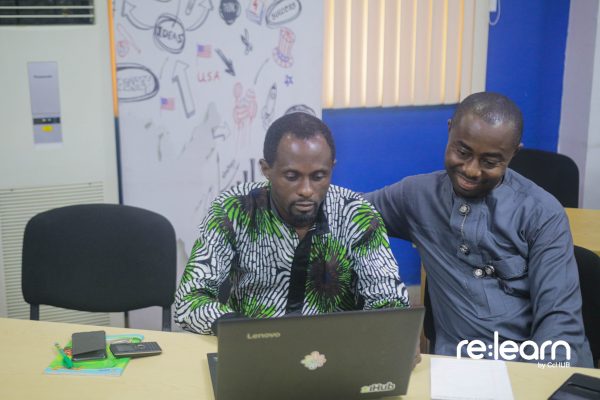Are teachers truly prepared for the new reality of a post-COVID-19 educational environment in Africa?
With the current situation of the pandemic spanning the globe, Education has taken a significant hit. This is reflected in the massive closure of schools, cancellation of assessments, etc. Thereby resulting in actionable steps being taken by governments, school authorities, and other education stakeholders towards designing and implementing various remote learning solutions as a matter of urgency.
Most countries in Africa, including Nigeria, are not left out of this and perhaps face an even greater challenge due to the poor quality of basic education. Some of the challenges facing education on the continent are structural and they include inadequate access to internet connectivity, inadequate power supply and inability to afford basic technology devices like a smartphone or computer.
Teachers and Educators lack requisite skills to facilitate online learning amidst the many constraints they face, and with the various solutions being implemented, teachers will need to build these skills quickly.
In the post-COVID-19 era, it is evident that all education stakeholders would need to be intentional about integrating technology in teaching across all levels of education. It is therefore pertinent that teachers are adequately upskilled to deliver the kind of education that the future demands.
Often in the drive to empower teachers with the skills they need to deliver value in their classrooms, the focus is on in-service teachers – already practicing teachers. However, we see an opportunity to maximize and accelerate impact and investment by extending these capacity-building opportunities to the pre-service teachers.
By ensuring they are well equipped with these 21st-century skills before they get into the classroom. This is even more important now as the education system will need this influx of highly-skilled personnel post-COVID-19.
Hence our approach to upskilling pre-service teachers, who are about to graduate in the next few months or 1 year, where in-demand skills on virtual learning and the use of technology in classrooms would definitely have a huge impact.
Early last year, CcHUB launched the Edtech Center of Excellence at the Tai Solarin University of Education- Nigeria’s foremost University of Education. The center, a first of its kind in Nigeria, is home to innovation in the application of technology for teaching and learning in classrooms across Africa. Our work at the center is channeled through the following focus areas:
- Technology application in schools/classrooms
- Digital laboratories and simulations
- Effective teaching methodologies for science education
- Teacher training and capacity development (Pre-service and In-service)
- Advanced and future technology in education
As part of our contribution to redefining the future of education in Africa post-COVID-19, we have designed a program called the NextGen Teachers, where we intend to virtually engage, educate, and create awareness for pre-service teachers about virtual learning and the use of technology in classrooms.
The primary goal of this is to build a community where we can support the advancement of pre-service teacher education by using technology to align preparation and practice.
In it, we will focus on teaching the skills that are required for 21st Century Education: which will include teaching methods, tools: exploring EdTech companies who are providing viable solutions for education, as well as examining the present solutions in the face of COVID-19 in various educational institutions across Africa.
We plan to foster an interactive forum for learning and sharing knowledge in a fun and exciting way. We aim to accelerate the following:
- Pedagogy readiness: Exposing the teachers to 21st-century skills and methodology i.e Inquiry-based learning necessary for becoming better teachers.
- Technical competencies: Ensuring that the teachers are well-versed in technology tools available to them which allows for an easier teaching and learning style.
- Collaborative learning: Helping teachers strengthen collaborative techniques to enable them to understand their value and become comfortable with sharing ideas.
We believe that this period is very crucial to transforming the way we teach and learn. Hence, we have now opened this program to all students in colleges of education, universities (faculties of education), and teacher training institutes in Nigeria and across Africa.
Should you be interested or know anyone who is qualified, kindly use and share the registration link below:
Registration link: http://bit.ly/NxtGnTeachers
Early registration is advised, as there are limited spaces available. For further inquiries, email: info@edtechcoe.com.
